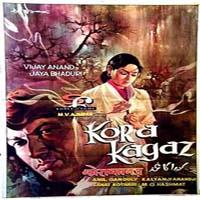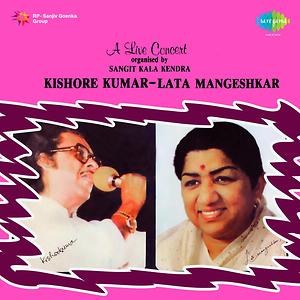

She was the president of the Cine Artistes' Association from 1994 to 2000. She formed a production company, Akruti, and produced serials like Palash ke Phool, Baaje Payal, Kora Kagaz and a comedy, Dal Mein Kaala.
#Kora kagaz song download serial#
She took their advice and became a television director in the early 1990s with the Gujarati serial Jyoti. So she stopped acting in films, and her friends recommended that she become a television director. Īfter her days as a leading lady ended, Parekh took on supporting roles as bhabhi (sister-in-law) and mother, but she called this the "awkward phase" of her career.

She also acted in some Punjabi films, such as Kankan De Ohle (1971) opposite Dharmendra and Lambhardarni (1976) with Dara Singh, as well as the hit Kannada film Sharavegada Saradara (1989). Parekh acted in her mother tongue by starring in three Gujarati films at the height of her fame in Hindi films, the first being Akhand Saubhagyavati (1963), which became a huge hit. Many important directors repeatedly cast her in several of their films, including Vijay Anand and Mohan Segal. Director Shakti Samanta gave her more dramatic roles in her other favourite films, Pagla Kahin Ka (1970) and Kati Patang (1970) the latter earned her the Filmfare Award for Best Actress. Parekh was primarily known as a glamour girl/excellent dancer/tomboy in most of her films, until director Raj Khosla gave her a serious image by casting her in tragedienne roles in three of her favourite films Do Badan (1966), Chirag (1969) and Main Tulsi Tere Aangan Ki (1978). Hussain also got her involved in distribution of 21 films, starting with Baharon Ke Sapne (1967). She also did a cameo in Nasir Hussain's film Manzil Manzil (1984) with whom she had earlier done 6 films. It also started a long association with Hussain who cast her as his heroine in six more films: Jab Pyar Kisi Se Hota Hai (1961), Phir Wohi Dil Laya Hoon (1963), Teesri Manzil (1966), Baharon Ke Sapne (1967), Pyar Ka Mausam (1969), and Caravan (1971). Precisely eight days later, film producer Subodh Mukherjee and writer-director Nasir Hussain cast her as the heroine in Dil Deke Dekho (1959), opposite Shammi Kapoor, which made her a huge star. At sixteen she decided to try acting again, and to make her debut as a heroine, but she was rejected from Vijay Bhatt's Goonj Uthi Shehnai (1959) in favour of actress Ameeta, because the filmmaker claimed she was not star material. The latter film's failure disappointed her, and even though she did a few more child roles, she quit to resume her schooling. Famed film director Bimal Roy saw her dance at a stage function and cast her at the age of ten in Maa (1952) and then repeated her in Baap Beti (1954). Parekh started her career as a child artist under the screen name Baby Asha Parekh. Her mother enrolled her in Indian classical dance classes at an early age and she learned from many teachers, including Pandit Bansilal Bharati.


Her mother, Sudha aka Salma Parekh, was a Bohra Muslim and her father, Bachubhai Parekh, was Hindu Gujarati. Asha Parekh is a Gujarati born on 2 October 1942.


 0 kommentar(er)
0 kommentar(er)
